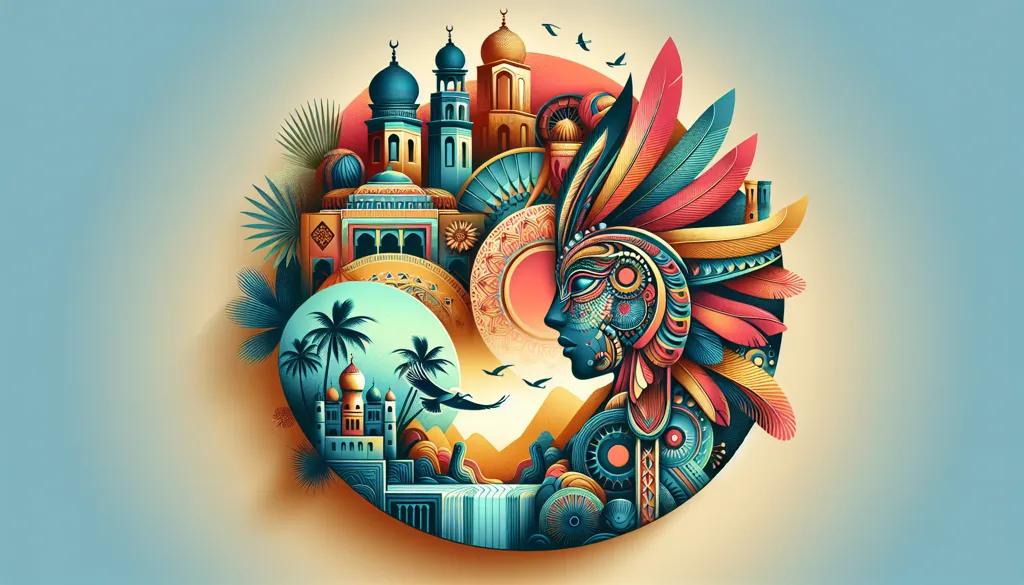Exploring the New Frontiers of Luxury Hospitality
The luxury hospitality industry is undergoing a profound transformation, driven by evolving consumer preferences, technological advancements, and the shifting global travel landscape. As someone who has always been fascinated by travel and rich cultural experiences, I find it remarkable to see how this industry is adapting to meet the needs of the modern traveler. From exclusive safari camps to luxurious tented lodges, the future of high-end travel promises not just opulence but meaningful experiences that foster personal growth and community connections.
The Changing Landscape of Luxury Travel
At the heart of this evolution is a shift in what luxury means to today's travelers. The International Luxury Travel Market (ILTM) recently highlighted how Marriott International is expanding its Luxury Group to include innovative brand extensions that redefine premium hospitality. With over 529 properties across 73 countries and a pipeline of more than 260 luxury hotels and resorts, the company is poised to lead the way in experiential travel.
This shift is largely driven by Millennials and Gen Z, who prioritize experiences over material possessions. They seek journeys that offer deep social connections and transformative adventures. As a mother of two, I can see why this resonates. In our fast-paced lives, finding time to connect with nature and culture is invaluable, and luxury travel is increasingly catering to this desire.
Redefining Luxury: Wellness and Connection
Modern luxury travelers are not just looking for five-star amenities; they are seeking wellness, community, and meaningful connections. The luxury all-inclusive model is evolving, offering bespoke experiences that prioritize balance and connection. This transformation is evident in the rise of private member clubs, luxury yachts, and safari camps, where guests can bond over shared passions in intimate settings.
Marriott's Luxury Group is set to launch new safari lodge brands, reflecting the growing interest in nature-focused escapes. As someone who grew up in the Midwest, the idea of connecting with nature on such a profound level is appealing. These immersive experiences promise not just relaxation but personal enrichment and cultural discovery.
The Role of Technology and Personalization
The rise of digital technology has revolutionized how luxury hospitality operates. Barak Hirschowitz, President of the International Luxury Hotel Association, emphasizes that today's luxury travelers are more informed and independent, expecting authenticity and immersive experiences. This has led hotels to rethink customer service and design, focusing on adventure and real-world experiences.
Personalization is now a defining trend in luxury travel. Travelers expect experiences tailored to their preferences, from bespoke itineraries to unique accommodations. For brands, this means moving away from standardized offerings and embracing customization. As a content writer, I understand the importance of tailoring experiences to individual needs, and it's exciting to see this approach being adopted in hospitality.
Sustainability and Future Growth
Sustainability is another critical aspect shaping luxury travel. As travelers become more conscious of their environmental impact, luxury brands are under pressure to adopt sustainable practices. From eco-friendly materials to supporting local communities, sustainability is now a necessity rather than a trend.
Looking ahead, the luxury travel market is expected to grow, particularly in urban and resort markets. The demand for personalized, unique experiences remains strong, and brands that can offer these will thrive. Walter Isenberg of Sage Hospitality Group notes that the industry is poised for success, with established brands maximizing their existing properties while meeting the evolving demands of luxury travelers.
Conclusion
The luxury hospitality industry is embracing a new era of travel, one that prioritizes wellness, connection, and sustainability. As the industry continues to evolve, it promises to offer travelers not just extravagant amenities but meaningful, once-in-a-lifetime experiences. For families like mine, who value both luxury and authenticity, this is an exciting development.
As we navigate this dynamic landscape, the insights from industry leaders like Barak Hirschowitz, Walter Isenberg, and Homi Vazifdar offer invaluable guidance. Their emphasis on personalization, cultural awareness, and service excellence provides a roadmap for success in luxury hospitality. For travelers, the journey to luxury is about choosing experiences that align with personal desires and ensuring they deliver on those promises. This transformative shift in luxury travel is not just about discovering new places but discovering new dimensions of ourselves.

